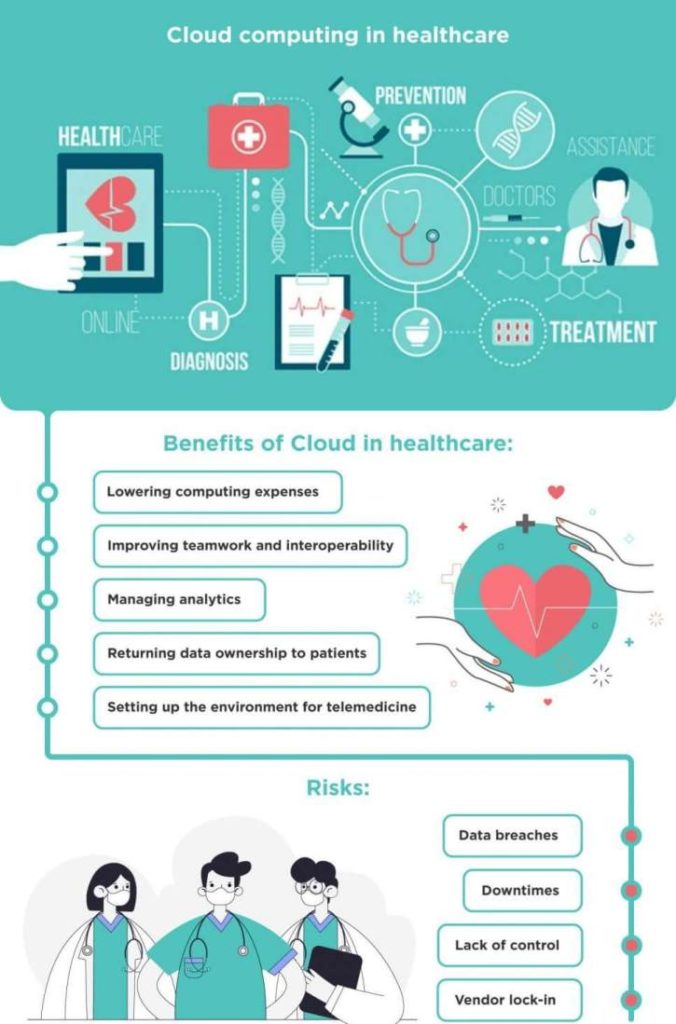Cloud computing has become a new motto for the healthcare industry. Hospitals and medical facilities need to preserve confidential information and pass it on to third parties. Cloud storage data can be transferred securely to all relevant healthcare stakeholders such as doctors, nurses, and carers in real-time. Thanks to cloud computing, the process of exchanging data has become much more comfortable. As information is processed in a structured manner, it reduces the risk of losing medical and administrative documents.
Cloud computing can increase or decrease the storage necessary to meet the needs of healthcare providers. The main benefits of cloud computing in the industry include:
– unsurpassed speed;
– quick access to information;
– management, and data protection.
If the system crash occurs, the cloud can provide several options for maintaining the organization’s data. On top of that, cloud storage can help detect fraud, drug theft, and business process inefficiencies. Combined AI, machine learning, and cloud technology can help make informed treatment decisions, check for medical errors, and create treatment plans.
Cloud technologies became a part of our everyday life, while the number of Cloud computing applications in the healthcare industry has constantly been increasing. It is a great solution for optimizing the storage of large amounts of data in a secure environment. In this infographic, we gathered benefits, risks, and use cases of cloud in medicine.
(Click on the image for full view)
Source: Jelvix


